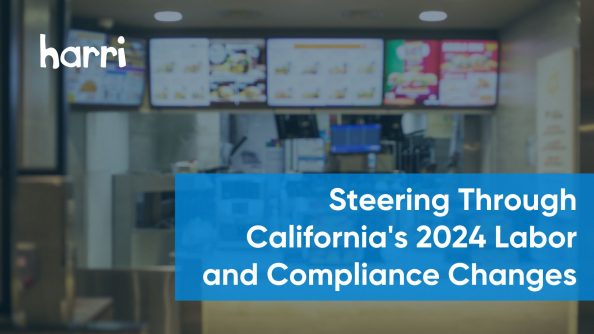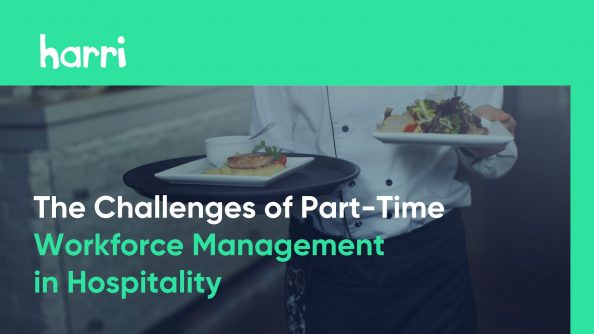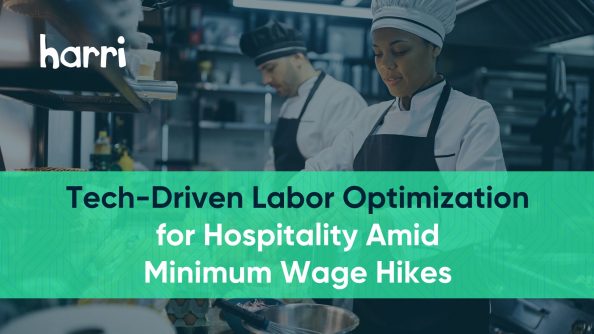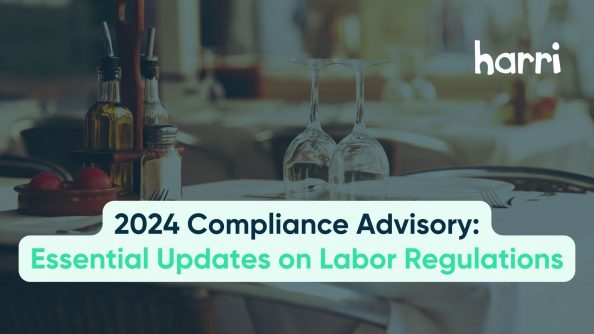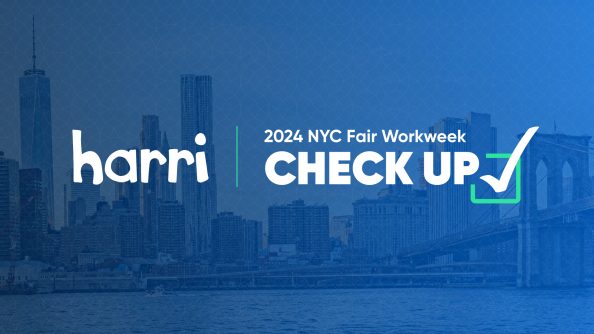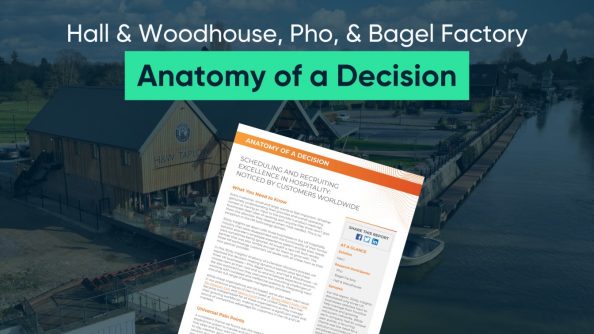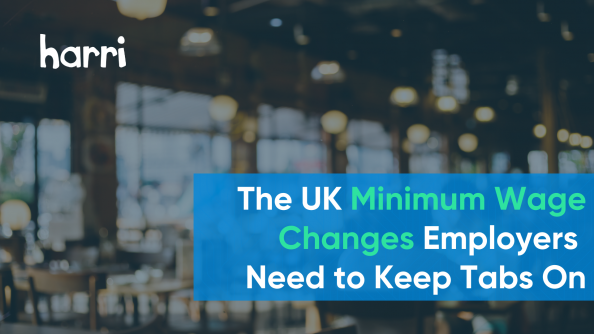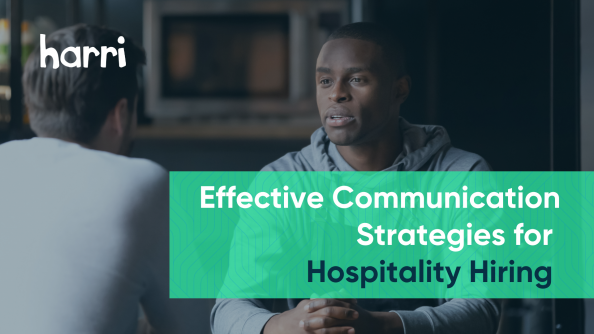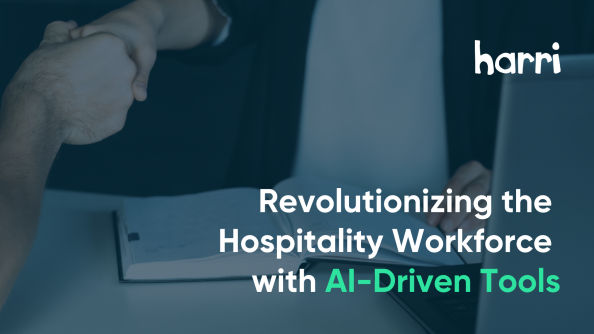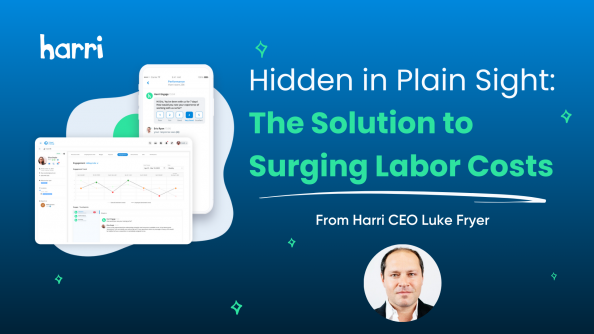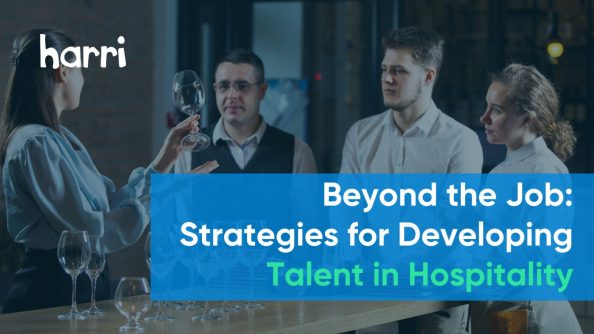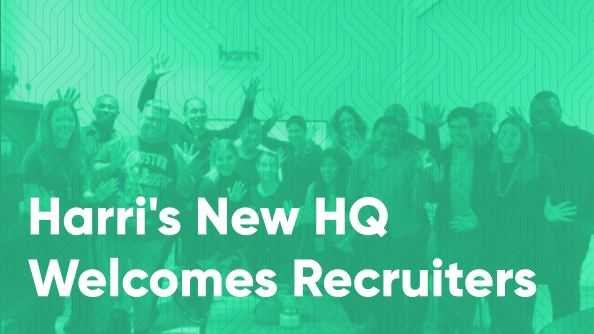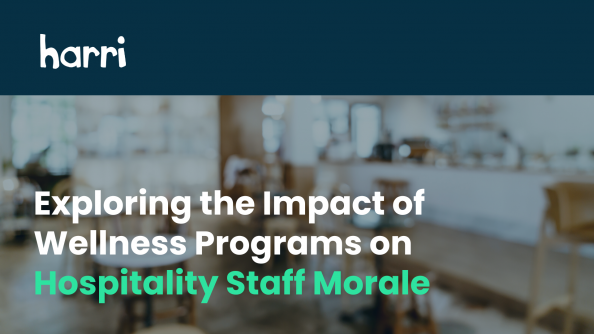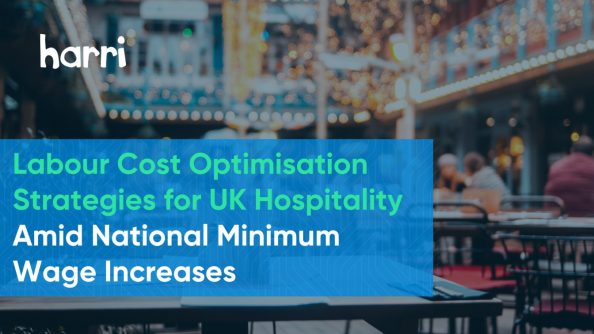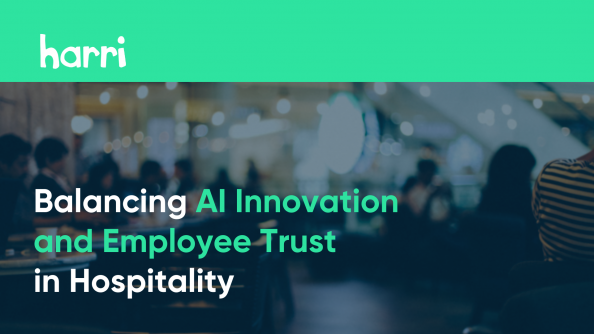Overcoming Barriers: Strategies for Inclusive Hiring in the Service Industry
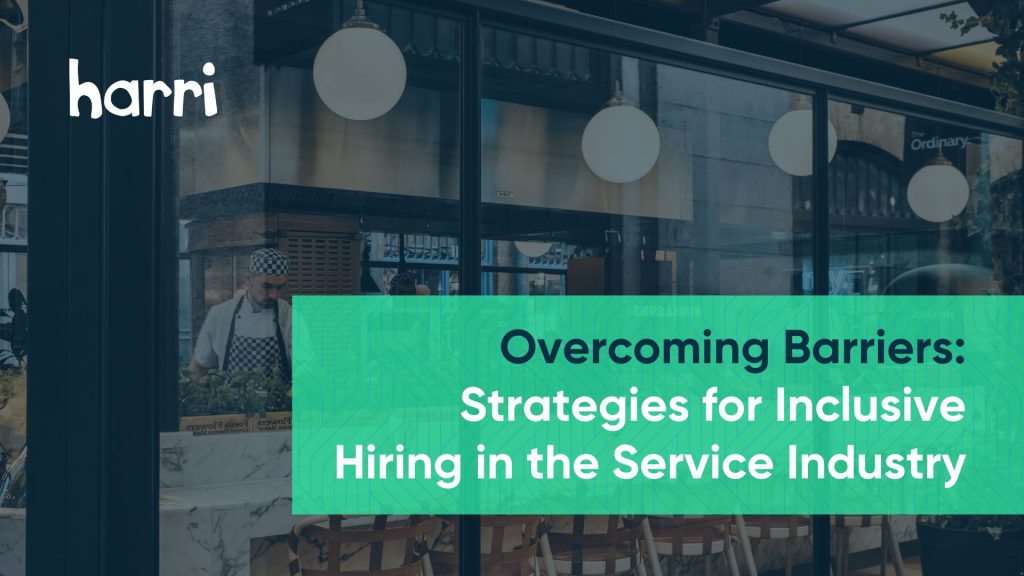
- By Harri Insider Team | February 20, 2024
It’s no secret that having a diverse talent team in your business has benefits, yet many businesses are falling short when it comes to putting inclusive hiring practices in place in the service industry.
“We know what we want to do, but how do we get there?” is a question many hiring managers and business operators find themselves asking. No one can deny the importance of diverse hiring, so we’re going to take a deep dive into the hiring processes and protocols that can help you nail diversity hiring practices, and build a cohesive team made up of qualified people who help your business to scale and evolve.

Identifying Barriers to Inclusive Hiring in the Service Industry
Sometimes, to get from point A to point B, we need to visualize the obstacles that are making the route more challenging. Some of these problems are obvious, like the lack of accessibility, but some, like unconscious bias or narrow recruiting channels, are less clear.
Each of these barriers hurts your overall workplace diversity and inclusivity approach. Evaluate the true level of diversity among your current workforce, including your leadership team, to help you consider where you are now, and next, let’s talk about some of the things that may be preventing your business from making inclusive hiring a part of every recruitment process.
Unconscious Bias: Understanding and Mitigating Its Effects
If you haven’t heard of the term “unconscious bias,” it’s time to learn. A lot of people haven’t, but it’s something most of us are guilty of at some point. In short, unconscious bias is when you are predisposed against someone (or something) without realizing it or knowing why. Unconscious bias is readily prevalent in hiring processes, but with a little time and attention, your business can develop strategies to mitigate its impact.
Unconscious bias comes in many forms. It can be a preconceived notion or ingrained stereotype of which we are entirely unaware, hence the term “unconscious.” It can be based on our residential location, our family upbringing, our past employment experiences, or things we hear on the news or radio. While these thoughts are not intentionally “bad,” they exist nonetheless, and often, we cannot change them until we’re aware of their existence.
Now that you understand the term and how easy it is for any of us to be biased in this way, you can be more aware of how damaging it is and of how to avoid it when you recruit to fill any open positions in your company. This is where employee training is critical, in addition to developing fair and unbiased hiring processes that remove any effects of unconscious bias. Our deep dive into diversity training in the hospitality workplace offers additional insight.
Expanding Accessibility and Outreach in Recruitment
In the rush to fill an open position, management teams may fall back on old hiring practices because they did the job quickly. However, when opening your team to more diverse hiring protocols, you’ll need to expand accessibility and outreach in your recruitment styles.
In practice, this means making it easier for prospective candidates to learn about your open positions and removing barriers preventing them from applying. Businesses won’t truly have a truly diverse infrastructure if their talent pipeline is limited in any way to a particular type of person or location.

Implementing Inclusive Hiring Practices
In the service industry, it can be beneficial if your team represents the society at large to which they serve. This requires inclusive hiring practices that are not only accessible but attainable by everyone interested and qualified.
A business can learn a lot by gathering data from past hiring sprees and comparing it to the current employee culture. What type of outreach and recruitment changes worked? What didn’t? Consider your current employee demographics to see where there are gaps, and work on ways to fill them. Set clear and quantitative targets and address any resistance as soon as you’re aware so you can resolve it quickly.
Widening Talent Search Pools for Diverse Recruitment
Online job boards are wonderful ways to get the word out about your company’s open jobs, but if you always use the same job board, you are likely to reach the same type of people each time. Consider looking at new places to advertise, or exploring the benefits of multi-channel job broadcasting to cast the widest possible net. Offer current employees a referral bonus by sharing the news with their friends and family. Trade school and community college or university job boards are another option with proven positive results.
If you have a franchise location developing in a new city, seek out candidates from that city, or perhaps you have room to allow for remote work, which expands your search pool even further without the restriction of commute times. Data-driven assessments and broader talent pools also make it harder for any kind of bias to determine who is chosen for a role.
Unbiased Screening Processes: Ensuring Fairness in Hiring
We talked about unconscious bias earlier, but one way we often employ that without knowing it is by taking one facet from someone’s application and/or resume and holding it against them. By blind interviewing, where you are unaware of the specifics of a person – such as name, gender, location, etc. – you will be much less likely to infer any bias, and it is a lot easier to be fair if you are truly reviewing the information based solely on merit, or skills and experiences. This promotes fairness from the first step in the diverse talent hiring process.
Creating an Inclusive Culture from Recruitment Onwards
Once changes have been made to fix the screening processes, it’s time to focus on the interviews. Using a consistent interview format is one way to encourage hiring managers to ensure parity; if everyone is offered the same options of in-person interviews or online interviews, we can rule out bias on one level.
Then, we can continue onwards using one approved set of interview questions, so comparison is truly equal and fair. If everyone is on the same playing field, playing by the same set of rules, everyone has the same opportunity to shine. Employees need to feel included in general sense, far beyond just the written processes that helped recruit them initially.
Fostering Inclusivity in Workplace Policies and Practices
While we have talked a lot about inclusive hiring, to grow a diverse team of employees, we must continue to foster inclusivity on a regular basis. This means taking a hard look at all our guidelines and practices from the top, making sure we don’t hire great people, only to discourage or lose them along the way. Inclusivity must be embedded in every set of rules and guidelines for both new and existing employees, including upward growth and career advancement.
Another important piece of an inclusive workplace is ongoing employee training that singles out no one. We can’t truly be fair if only certain people are required to follow rules; everyone must be aware of the same goals and work together towards achieving them. This makes a business culture a more enjoyable and safe space for all employees.
Building a Supportive Environment for Diverse Teams
Having support systems in place for your employees is necessary for all businesses, but the fast-paced service industry has some nuances to consider. Not every team will face the same challenges but all of them will need a process to protect their rights and address job satisfaction.
Unfortunately, service industry employees still report witnessing or experiencing racism at their workplace. To build those levels of support, you may want to consider cultural awareness training or creating policies to ensure everyone is represented across all leadership levels, including those from underrepresented backgrounds. It’s not enough to pay lip service to a specific demographic; it’s necessary to truly seek solutions that work and to be willing to seek out and accept feedback from your employees. Listen if they say that something isn’t working and be prepared to revisit a guideline to address concerns more proactively.
Having a diverse management team not only models your diverse hiring practice efforts but gives every employee a visual of what can be achieved. When everyone feels represented, they are more invested and more likely to show up for work each day, giving their best. In the service industry, this can make or break a business. Consider these tips from Harri on how to build a diverse candidate slate for leadership roles.
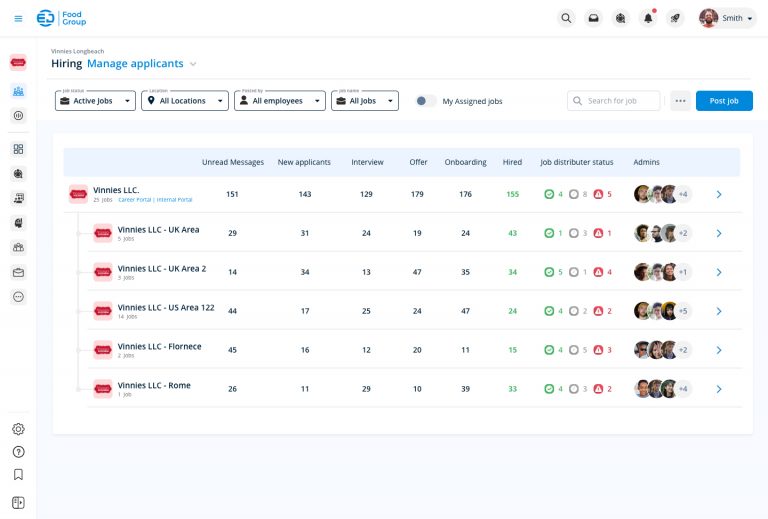
How Technology Can Aid in Inclusive Hiring
These diverse hiring practices may all sound great but putting them into practice sounds less exciting without the technical help to put it all together. This is where Harri comes into play. Harri’s integrated suite of software is built for the service industry and offers solutions to help your team facilitate unbiased recruitment and to attract a diverse candidate pool. This includes multi-channel job broadcasting options, Carri, our conversational AI ambassador, and more. Harri’s engagement software also allows you to publish your diverse hiring practices and employ a staff recognition program that is accessible to everyone.
Harri’s conversational AI is the best way to harness modern technology to offer an unbiased recruiting experience and never miss a qualified hospitality candidate. Enhancing your company’s diversity is a multi-prong approach with a huge payout, and Harri is here to help.
Empower Inclusive Hiring for a Diverse Workforce
Inclusive hiring is more than a buzzword. Your business will see the benefits when your diverse talent team is hired and running at full steam. From outreach and recruitment to ongoing training and business growth, keep your eyes on the goals, and reach out to us to demo Harri for yourself and see firsthand how Harri can transform your business.

